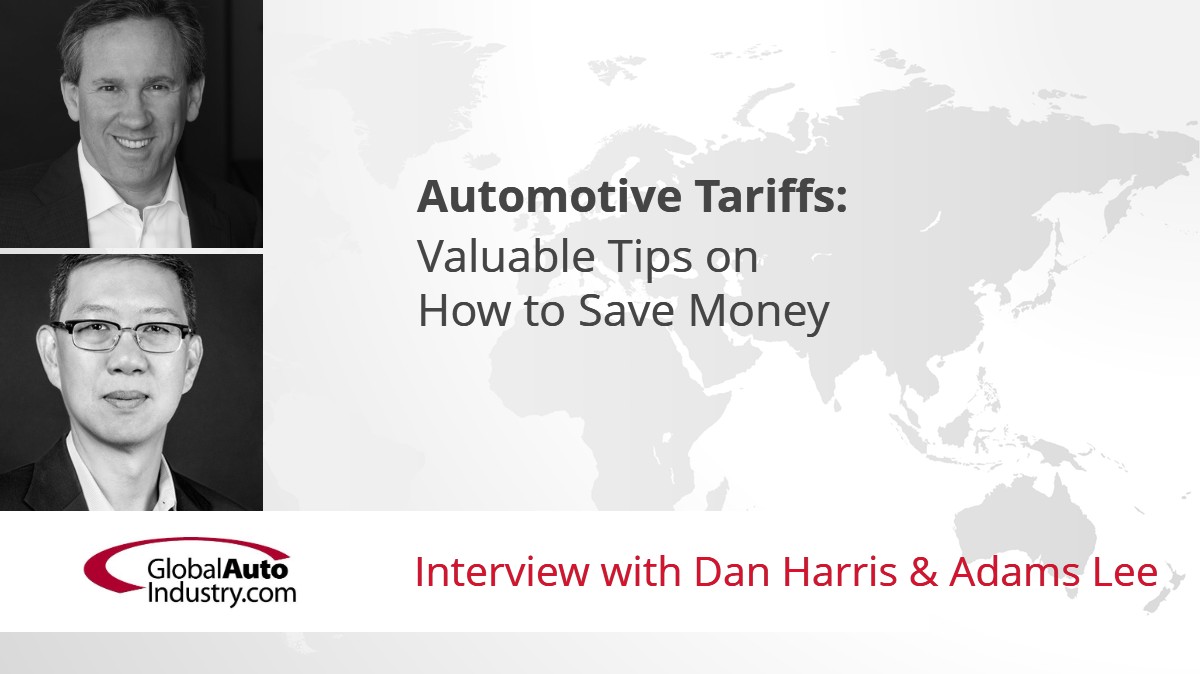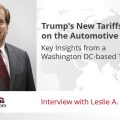Automotive Tariffs: Valuable Tips on How to Save Money

GlobalAutoIndustry.com’s latest Audio Interview “Automotive Tariffs: Valuable Tips on How to Save Money” features Dan Harris and Adams Lee. Dan is Founder of Harris Sliwoski, a leading international law firm. He is widely recognized as a leading expert on legal issues related to conducting business in emerging markets. He is frequently sought after for his insights by major media outlets such as Forbes, Business Week, Fortune, The BBC, The Wall Street Journal, CNBC, The New York Times, among others. Adams is an accomplished international lawyer with over twenty years of experience in providing strategic legal advice on complex trade and regulatory matters to U.S. and foreign companies, trade associations, and governments. He deals with tariff issues on a daily basis.
In the 21-minute Audio Interview, Mr. Harris and Mr. Lee discuss these questions:
- The Trump administration appears to be making more frequent use of the International Emergency Economic Powers Act (IEEPA) to impose tariffs. Can you explain how IEEPA is being applied in this context, and what kinds of legal or constitutional challenges this approach might face?
- During the first Trump term, many businesses benefited from a formal tariff exclusion process. With the legal strategy shifting in this second term—particularly through IEEPA and new Section 232 or 301 actions—do you think similar exclusion opportunities will be available? And what does the Biden administration’s decision not to roll back those earlier tariffs suggest about the long-term, bipartisan direction of U.S. trade policy?
- When it comes to reducing tariff exposure, there are several legal tools available—things like HTS classification, valuation adjustments, and substantial transformation. Which of these strategies are proving most effective right now, and what should companies be doing proactively to minimize their tariff liability?
- The term “tariff stacking” has become a growing concern, especially for goods originating in China. Can you walk us through what tariff stacking means in practice, and what steps importers can take to avoid being hit with multiple overlapping duties?
- Enforcement activity around tariff compliance appears to be ramping up again. What kinds of high-risk or even illegal tactics are companies still using to try to avoid tariffs, and what kind of response are we seeing from U.S. Customs and Border Protection or other enforcement agencies?


